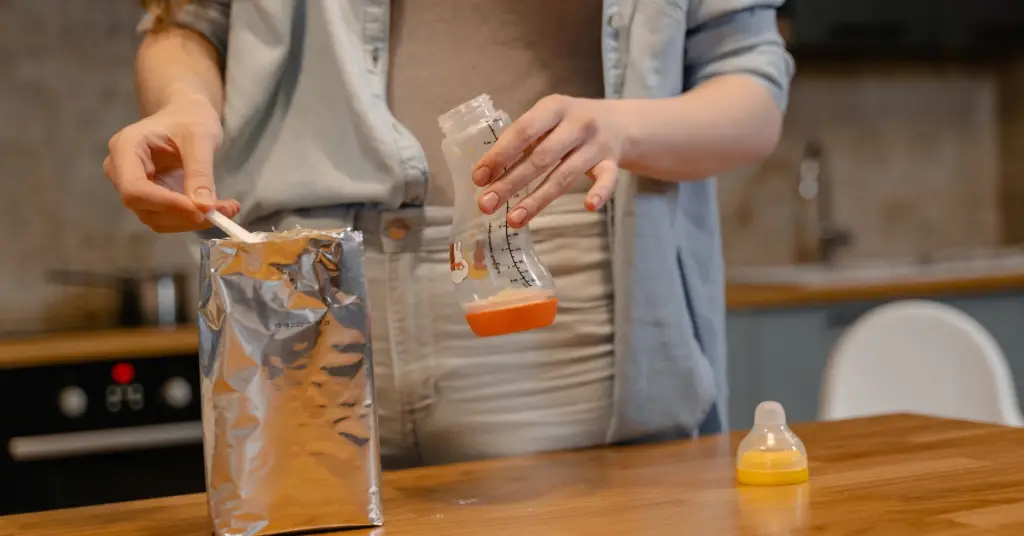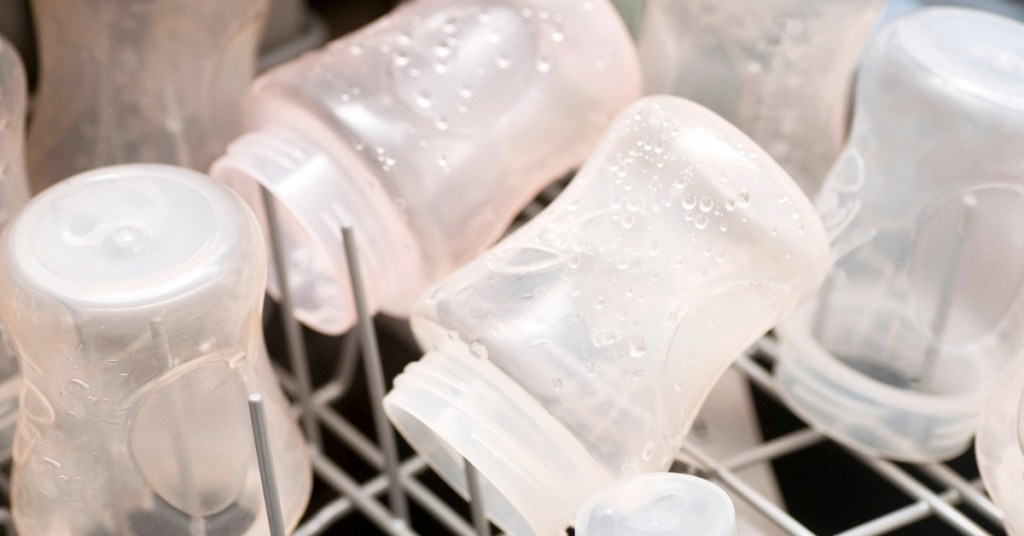Find out whether or not breastfed babies are more clingy than formula-fed babies. We examine research around this topic, as well as share some tips for helping your baby develop healthy attachment behaviors.
The products mentioned on this page were independently selected by Babycious editors. As an Amazon Associate, Babycious may earn a commission from qualifying purchases.

Photo by Jonathan Borba on Unsplash
There’s no doubt that breast milk is the best food for newborns. It provides all of the nutrients they need to grow and thrive. But a question that often comes up among new moms is whether or not breastfed babies are more clingy than formula-fed babies. If you are worried about your baby becoming clingy if you choose to breastfeed, read on to learn more about the effects of breastfeeding on baby’s attachment behaviors and what the research says about this topic.
It’s important to understand that all babies are born with a need to be close to their caregivers. This is what attachment is. It’s a baby’s way of ensuring that his or her needs will be met. All babies form attachments, whether they are breastfed or formula-fed.
So, what does the research say about whether or not breastfed babies are more clingy than formula-fed babies?
Breastfed babies are not more clingy than formula-fed babies, quite the opposite in fact. Breastfed babies tend to be more independent and self-sufficient than formula-fed babies. This is because they are more likely to have their emotional needs met through breastfeeding and they have more control over the flow of milk and when to stop nursing which in turn fosters more independence and healthy attachment behaviors.
A look at the research examining breastfeeding and child attachment behaviors supports this claim. A study published in the Maternal and Child Health Journal found that breastfed babies are rated as having slightly higher scores on the measures for “warm and cuddly” and “cooperative” and lower scores on the measure for “demanding/angry”. Moreover, this study found no evidence that breastfeeding is linked to a child’s temperamental dependency.
How Breastfeeding Fosters Independence
Breastfeeding fosters independence in babies in many ways.
First, it is important to keep in mind that breastfeeding is how we are equipped to meet our baby’s needs. When we breastfeed, we are not only giving our baby the perfect food, but we are also providing them with the comfort and security of our presence. This helps babies to feel safe and secure, which in turn fosters independence.
Another way breastfeeding fosters independence is by giving babies control over when to nurse and how much milk they consume. This is in contrast to bottle feeding, where the caregivers control both the flow of milk and when the baby eats. Giving babies this control helps them to feel more in control of their environment and their own needs, which leads to a sense of independence.
Additionally, if you choose to let your child wean on his or her own, this furthers their sense of independence and autonomy. Allowing your child to self-wean encourages them to be even more independent because it gives them control over when they stop breastfeeding.
What Causes (any) Baby to Become Clingy?
From a psychological perspective, Edward Tronick, Director of Child Development Unit and Distinguished Professor at the University of Massachusetts Boston, known for the “still face experiment” says that the development of a secure attachment is dependent on the mother and baby engaging in what we call ‘serve and return’ interactions. These are the back-and-forth interactions between parent and child that help the child to regulate his or her emotions.
Clinginess is mainly caused by a feeling of insecurity. When a baby does not feel secure, he or she will become clingy in order to try to re-establish that sense of security. Breastfeeding is a big contributor to a baby’s sense of security because it provides them with the warmth and close interactions with their mom, as well as the nutrition they need. The hormones that are released during nursing also help to calm and soothe babies, further contributing to their sense of security.
Whether you are breastfeeding or not, being calm and responsive with your baby is key to helping them feel secure and avoid clinginess. Your baby can feel your state of mind, so it is important to try to stay calm even when they are fussing. Responding quickly and consistently to your baby’s needs will also help to foster a sense of security and avoid clinginess.
Every Baby Is Different!
If you ask around, you will likely get a variety of different answers to the question of whether or not breastfed babies are more clingy. This is because every baby is different! Some babies may be more clingy than others, regardless of whether or not they are breastfed.
It is also a personality thing. Some babies are just naturally more independent than others. And of course, some babies may become more clingy at different stages than others. For example, a baby who is going through a growth spurt may be more clingy than usual because they are extra hungry.
The best thing you can do as a parent is to get to know your own baby and what makes them happy. This way, you will be better equipped to handle any clinginess that may come up and respond in a way that is best for your baby.
Final Thoughts
The bottom line is that breastfed babies are not more clingy than formula-fed babies. If anything, breastfeeding can actually help to foster independence in babies. However, every baby is different, so it is important to get to know your own baby and what makes them happy.
In any case, you don’t need to worry about any negative effects of breastfeeding since it’s the most natural way to meet your baby’s nutritional and emotional needs to help them be best equipped to explore the world and develop a sense of independence.
The purpose of this article is informative and educational only. It’s not a substitute for medical consultation or medical care. We do not accept any responsibility for any liability, loss, or risk, personal or otherwise, incurred as a consequence, directly or indirectly, from any information or advice contained here. Babycious may earn compensation from affiliate links in this content.



